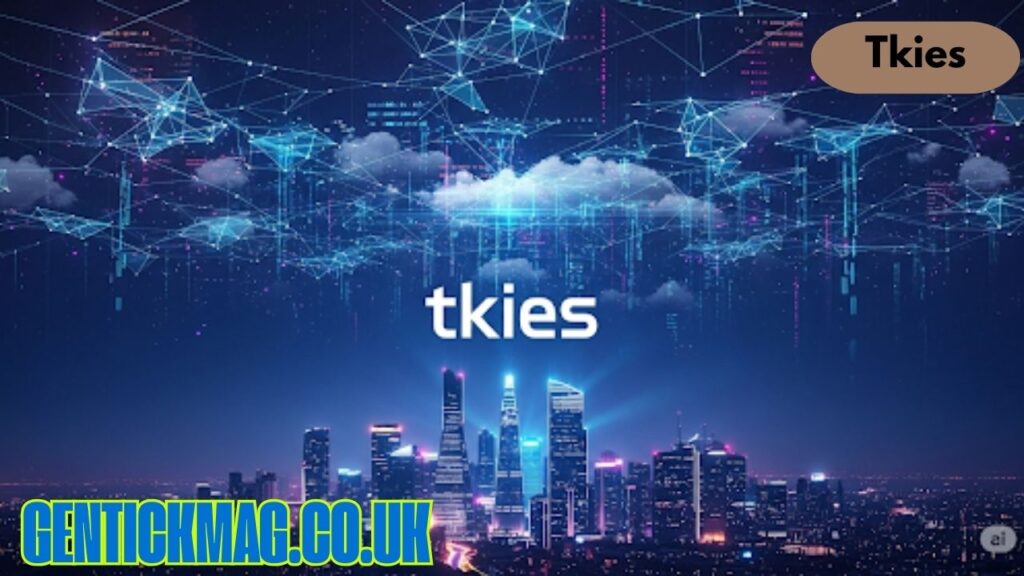Introduction to Tkies
In the modern era, technology-driven solutions continue to transform industries, businesses, and daily life. One of the emerging terms that has attracted attention is tkies. The word itself may sound unusual at first, but it represents a growing concept tied to technology, innovation, and digital transformation. Tkies is not simply a random phrase—it carries weight in discussions related to software, business development, and operational excellence. Understanding tkies requires looking at how it applies to multiple areas such as cloud computing, data management, software development, and customer engagement.
Tkies has become relevant in conversations among entrepreneurs, IT specialists, and organizations trying to gain an edge in an increasingly digital marketplace. By exploring what tkies means and how it integrates with modern practices, we can gain valuable insight into its importance for businesses and individuals alike.
The Concept of Tkies in Technology

At its core, tkies can be understood as a representation of technological adaptability. It stands for tools, knowledge, innovation, efficiency, and sustainability—concepts that collectively define progress in the digital world. Companies and organizations that embrace tkies often seek to enhance workflows, optimize costs, and provide improved services to their clients.
The value of tkies lies in its broad application. For example, in software engineering, tkies reflects the mindset of building products that are scalable, flexible, and user-friendly. In business operations, tkies may refer to digital strategies that streamline processes while ensuring data security. In education, tkies is about adopting e-learning platforms and advanced systems that empower students to learn effectively.
The concept’s versatility makes it adaptable to different sectors, which is why tkies continues to gain recognition across various industries.
Tkies in Business Transformation
Business leaders today understand that embracing digital transformation is no longer optional—it is necessary for survival. Tkies fits directly into this transformation, as it encapsulates the tools and strategies required for adapting to change. Organizations that leverage tkies benefit from automation, data-driven insights, and improved decision-making.
For small and medium-sized enterprises, tkies represents an opportunity to level the playing field with larger competitors. By utilizing tkies-driven solutions, even smaller businesses can adopt cloud services, artificial intelligence, and customer relationship management systems that allow them to compete more effectively.
Tkies is not limited to software tools; it also includes a mindset of innovation. This means business leaders must not only invest in technology but also in training their workforce to embrace tkies principles. Doing so creates a culture of agility and resilience, which is essential in fast-changing markets.
Tkies and Customer Engagement
One of the most crucial aspects of modern business is customer engagement, and tkies plays a central role here as well. By combining technology and innovation, businesses can better understand their customers’ needs, personalize experiences, and build long-term relationships.
Tkies in customer engagement involves using advanced data analytics to study customer behavior, adopting AI-powered chatbots to provide quick support, and implementing seamless digital platforms that allow customers to interact with brands easily. Companies that adopt tkies-driven engagement strategies often see higher customer satisfaction, loyalty, and retention.
In today’s world, customers expect efficiency, speed, and personalization, and tkies provides the framework for businesses to meet these expectations consistently.
Tkies in Data Management
Data is considered the new currency of the digital era, and managing it effectively is one of the biggest challenges organizations face. Tkies in the context of data management emphasizes security, accuracy, and accessibility. With cyber threats on the rise, companies cannot afford to neglect how they collect, store, and protect information.
Implementing tkies strategies for data management ensures that businesses can safeguard sensitive information while still gaining valuable insights from their data. This involves adopting secure cloud storage, encryption methods, and advanced analytics platforms. Tkies helps organizations strike the right balance between data usability and data protection.
Furthermore, tkies encourages businesses to adopt ethical practices in data handling. Transparency in how customer data is collected and used builds trust and strengthens brand reputation.
Tkies in Software Development
Software development is one of the most direct areas where tkies makes an impact. Developers today must build applications that are scalable, secure, and capable of handling real-world demands. Tkies principles support agile methodologies, DevOps integration, and continuous improvement in software design.
By applying tkies, developers can focus on creating solutions that deliver long-term value to users rather than short-term fixes. Whether it is mobile app development, enterprise solutions, or cloud-native platforms, tkies emphasizes flexibility and innovation at every stage.
Moreover, tkies-driven development encourages collaboration between developers, designers, and stakeholders. This results in better communication, faster delivery, and software products that truly meet the needs of end users.
Tkies and Education
The educational sector has undergone a massive shift, especially after the rise of remote learning. Tkies in education reflects the adoption of e-learning platforms, digital classrooms, and virtual collaboration tools that enhance teaching and learning experiences.
Teachers and institutions that adopt tkies principles find new ways to make lessons more engaging and accessible. For students, tkies provides the flexibility to learn at their own pace, access resources online, and collaborate with peers from anywhere in the world.
Education powered by tkies not only equips learners with knowledge but also prepares them for a future where digital literacy is essential. Schools, colleges, and training institutions worldwide are investing in tkies-driven platforms to keep up with global learning standards.
Tkies in Healthcare
Healthcare is another area where tkies is making a strong impact. Hospitals, clinics, and medical research organizations are using digital tools to improve patient care, diagnosis, and treatment. Tkies helps healthcare providers adopt telemedicine, electronic medical records, and AI-assisted diagnostics to ensure better efficiency and accuracy.
Through tkies, patients benefit from quicker consultations, better monitoring of chronic conditions, and easier access to healthcare professionals. For doctors, tkies provides advanced tools to track patient history, collaborate with specialists, and recommend personalized treatments.
The integration of tkies in healthcare not only saves time but also improves outcomes, making it an essential part of the industry’s ongoing transformation.
Challenges in Adopting Tkies
While the potential of tkies is enormous, challenges exist in its adoption. Many organizations face barriers such as high implementation costs, lack of technical expertise, and resistance to change. For small businesses, adopting tkies-driven solutions may seem overwhelming due to financial constraints.
Another challenge lies in cybersecurity. As companies adopt more digital tools, they become more vulnerable to cyber threats. Without proper safeguards, the benefits of tkies can be overshadowed by data breaches and system failures.
However, these challenges can be overcome by careful planning, phased adoption, and ongoing employee training. Companies that approach tkies adoption strategically are able to minimize risks while maximizing rewards.
The Future of Tkies

Looking ahead, tkies will continue to evolve as technology advances. Artificial intelligence, blockchain, and next-generation cloud services are expected to play a major role in shaping its future. Tkies will become increasingly vital for businesses that want to remain competitive in an interconnected, digital-first economy.
The future of tkies will likely involve even greater automation, more intelligent data analysis, and a focus on sustainability. As global concerns about the environment grow, tkies will also align with green technologies that reduce waste and promote eco-friendly practices.
Ultimately, tkies will not be a passing trend but a long-term driver of growth, efficiency, and innovation across industries.
Conclusion
Tkies is more than just a term—it is a representation of how technology, knowledge, and innovation come together to drive transformation in modern life. From business operations and customer engagement to education and healthcare, tkies is reshaping industries by providing powerful solutions that address contemporary challenges.
While the journey toward full adoption comes with challenges, the benefits far outweigh the risks. Organizations that embrace tkies are better equipped to handle market changes, meet customer expectations, and remain competitive in a rapidly evolving digital landscape.
As we move further into the future, tkies will remain at the heart of progress, enabling individuals and businesses to thrive in an increasingly connected world.
Also Read: Erick Flowback Services: A Complete Guide
